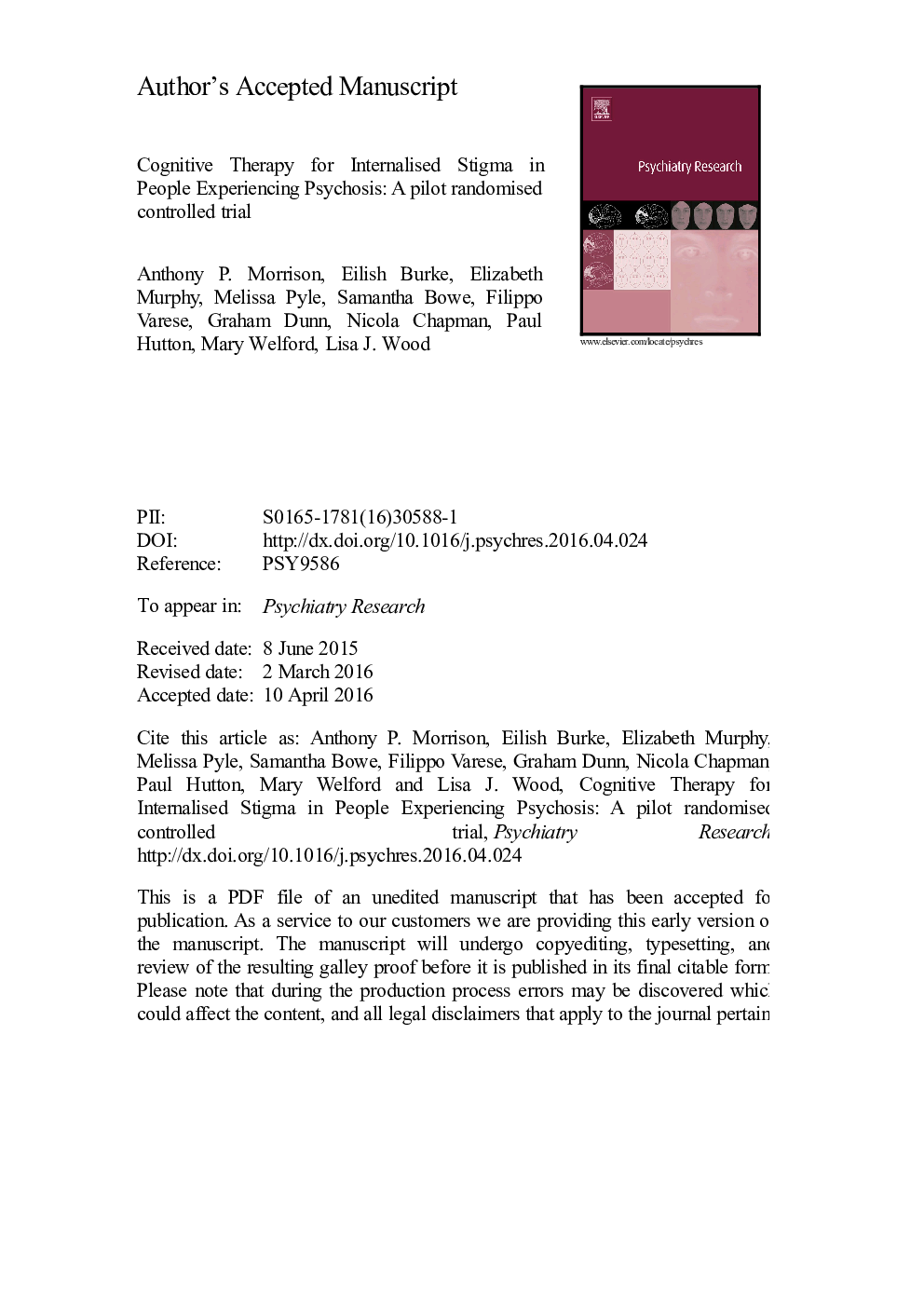| Article ID | Journal | Published Year | Pages | File Type |
|---|---|---|---|---|
| 6813210 | Psychiatry Research | 2016 | 26 Pages |
Abstract
We aimed to evaluate the feasibility of Cognitive Therapy (CT) as an intervention for internalised stigma in people with psychosis. We conducted a single-blind randomised controlled pilot trial comparing CT plus treatment as usual (TAU) with TAU only. Participants were assessed at end of treatment (4 months) and follow-up (7 months). Twenty-nine participants with schizophrenia spectrum disorders were randomised. CT incorporated up to 12 sessions over 4 months (mean sessions=9.3). Primary outcome was the Internalised Stigma of Mental Illness Scale - Revised (ISMI-R) total score, which provides a continuous measure of internalised stigma associated with mental health problems. Secondary outcomes included self-rated recovery, internalised shame, emotional problems, hopelessness and self-esteem. Recruitment rates and retention for this trial were good. Changes in outcomes were analysed following the intention-to-treat principle, using ANCOVAs adjusted for baseline symptoms. There was no effect on our primary outcome, with a sizable reduction observed in both groups, but several secondary outcomes were significantly improved in the group assigned to CT, in comparison with TAU, including internalised shame, hopelessness and self-rated recovery. Stigma-focused CT appears feasible and acceptable in people with psychosis who have high levels of internalised stigma. A larger, definitive trial is required.
Related Topics
Life Sciences
Neuroscience
Biological Psychiatry
Authors
Anthony P. Morrison, Eilish Burke, Elizabeth Murphy, Melissa Pyle, Samantha Bowe, Filippo Varese, Graham Dunn, Nicola Chapman, Paul Hutton, Mary Welford, Lisa J. Wood,
